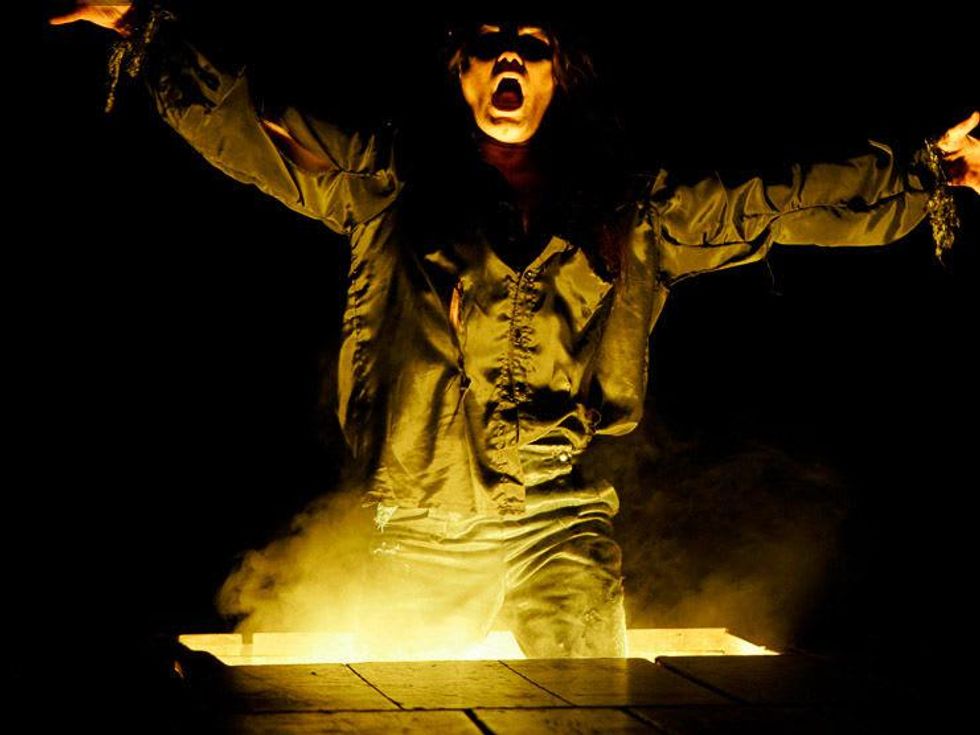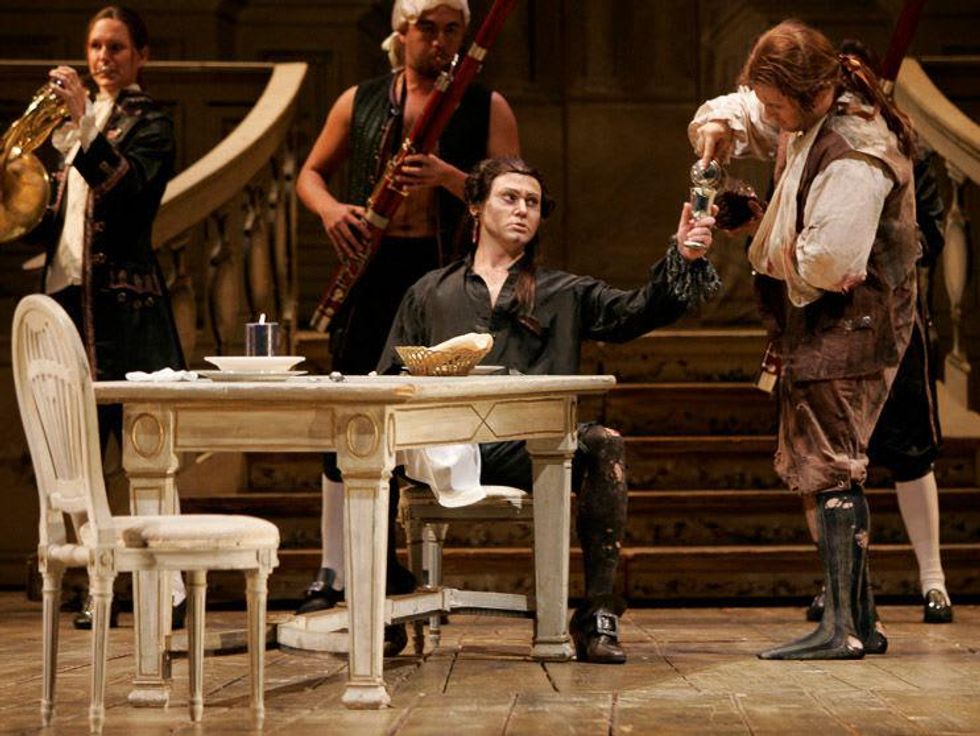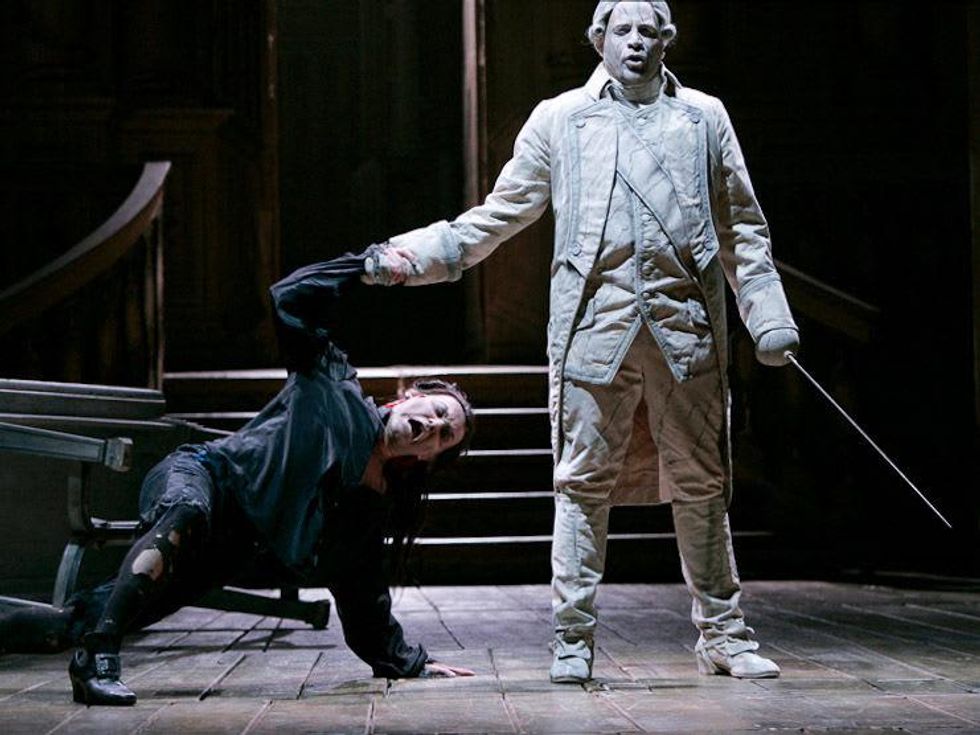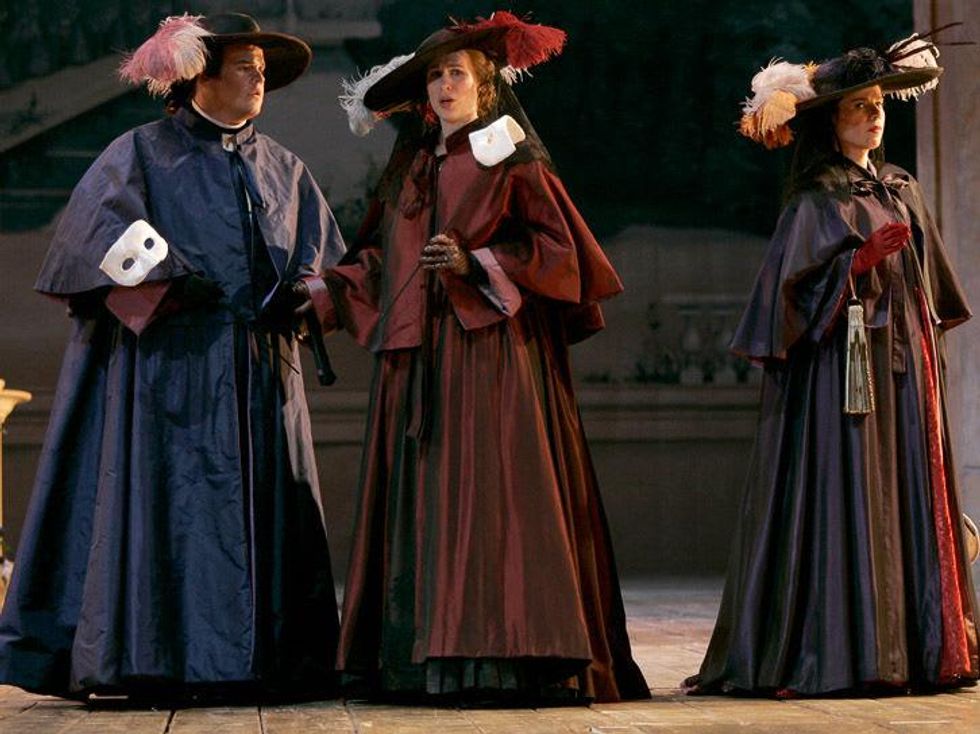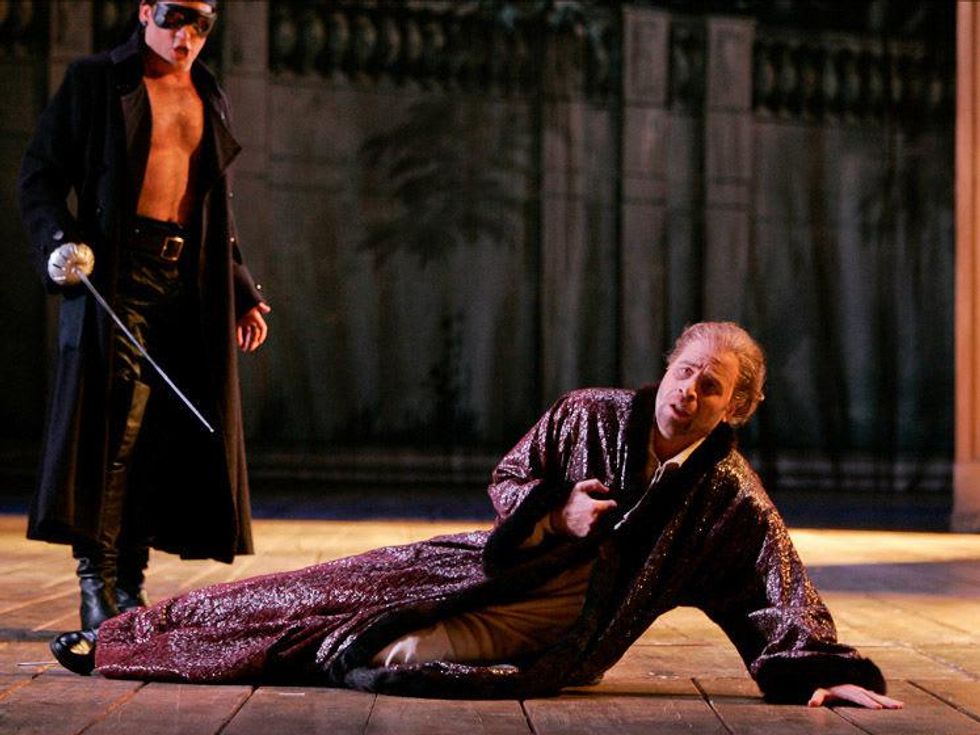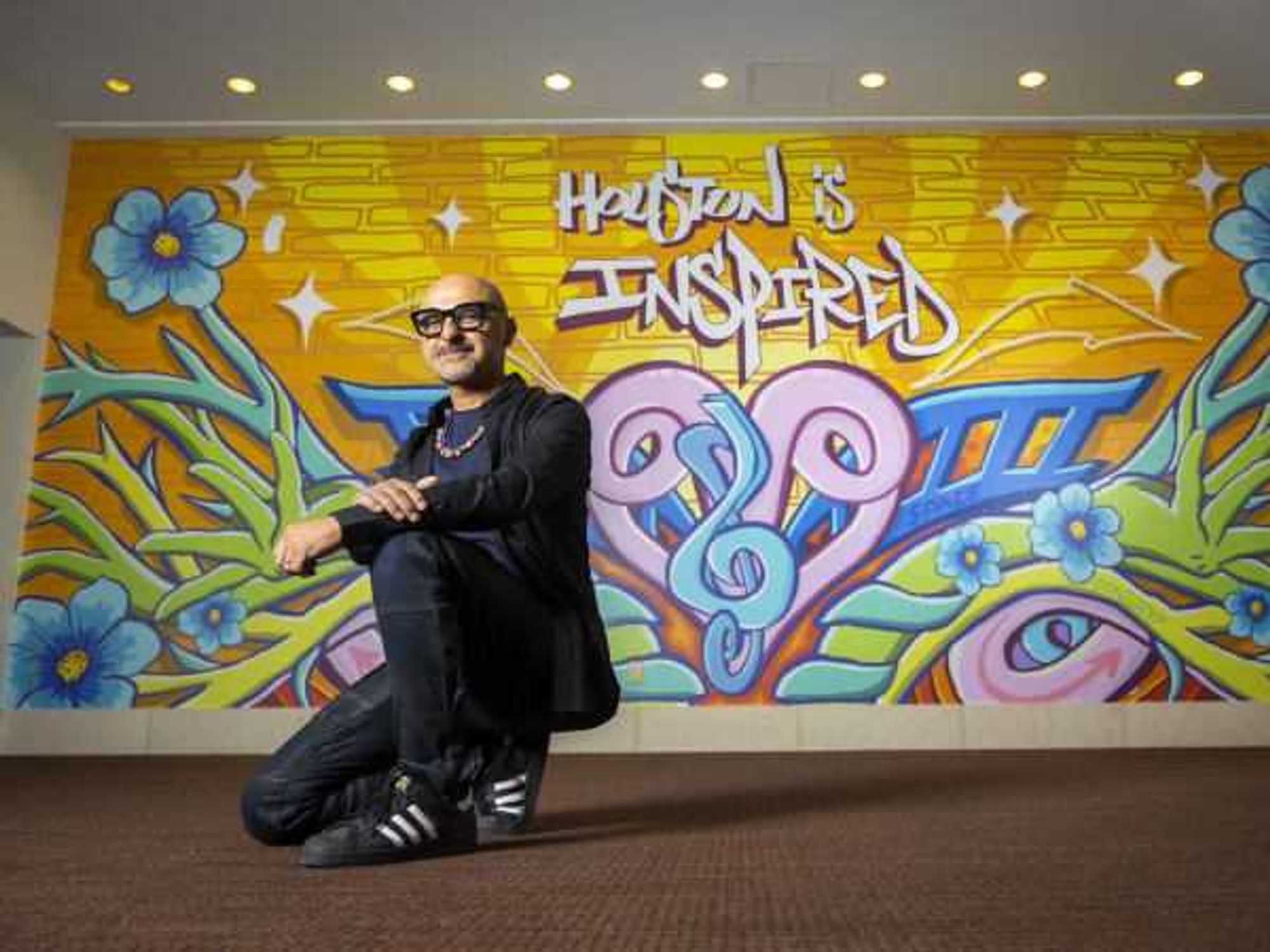Mozart's Masterpiece
The world's greatest womanizer brings sex appeal to Houston Grand Opera's Don Giovanni
It was hot and brazenly humid the morning I left my faded old hotel in Prague’s Wenceslas Square and walked towards the Vltava River. After crossing over one of the city’s magnificent statue-lined footbridges, I was already soaked in sweat as I climbed the steep and cobbled old Malá Strana.
I was searching for the house where, it is alleged, Casanova lived in his later years.
That was nearly 20 years ago, and though I found the house eventually, I don’t remember too much about it. The rooms in Prague had a vaguely lingering sensual appeal, if not a bit erased, like a former bordello I’d visited in Amsterdam that had been later sanitized into a sex museum.
Back in the day, of course, the central character would have been best described as a womanizer. In press materials, he’s called “the world’s most unrepentant playboy.”
I do, however, remember the young Czech museum guide’s amusing broken-English stories about Giacomo Girolamo Casanova de Seingalt, arguably the world’s greatest player. Apparently, while living in Prague, Casanova hung out with Mozart, and counted Voltaire and a young Beethoven among his other acquaintances. He might have even contributed some lines to Lorenzo Da Ponte’s libretto for Mozart’s brilliant opera, Don Giovanni.
If I had to choose five inspired operas every person should know, Don Giovanni would figure prominently among them, possibly even landing first on the list. I’ve always considered it Mozart’s masterpiece, which is saying a lot. After all, this is the man who composed countless glorious symphonies and pieces of chamber music, not to mention both The Marriage of Figaro and The Magic Flute.
Houston Grand Opera’s production, which opens Friday night at Wortham Theater Center, features sets and costumes by Carl Friedrich Oberle. Harry Silverstein directs and the celebrated Trevor Pinnock conducts.
Since Don Giovanni premiered in Prague in 1787, it has captured the imagination of numerous composers, writers, artists and directors. Even a short list demonstrates the most extraordinary range: Richard Strauss, Pushkin, Desi Arnaz, Byron, Buddy Holly, Ingmar Bergman, Kierkegaard, Camus and Jim Jarmusch.
The opera has a way of bringing both humor and sophistication, not to mention a stunning sense of the supernatural, to even the most commonplace book or movie. Who could forget, for example, Steve Buscemi’s ethereal visit from the Commendatore in Bill Sherwood’s 1986 film Parting Glances? “Heaven is REAL boring,” he tells Buscemi in one memorable scene, adding, “Hang on as long as you can.”
Mozart and Da Ponte’s complete title is Il dissoluto punito, ossia il Don Giovanni, often translated as “The Rake Punished, or Don Giovanni.” Back in the day, of course, the central character would have been best described as a womanizer with a clinical case of satyriasis. In HGO press materials he’s called “the world’s most unrepentant playboy.”
“Heaven is REAL boring,” he tells Buscemi in one memorable scene, adding, “Hang on as long as you can.”
He’s the stuff of today’s reality television, to be sure, since he fits in easily with both the sex addicts and the players. No matter what the words, this is just another way of saying that Mozart's late 18th century opera is anything but stuffy by today's standards.
By way of example, one need look no further than Peter Sellars’ production from the 1980s, which brought pistols, identical twins (Herbert and Eugene Perry as Don Giovanni and Leporello) and even some memorable white jockey briefs into the mix. Critics and fans loved arguing over it, but I think it truly captured one of the opera’s themes, the grasping of pleasure in the face of impermanence.
Here’s an excerpt from the end of the first act:
And who hasn’t fallen at least once for a bona fide player? For those of us willing to admit it, this is yet another reason for the opera’s enduring appeal. Players can be lots and lots of fun, like playing with wooden matches in a barn full of hay.
Watch how Zerlina hesitatingly falls for Don Giovanni in this glorious Act I duet, “Là ci darem la mano" (There we will entwine our hands)?
